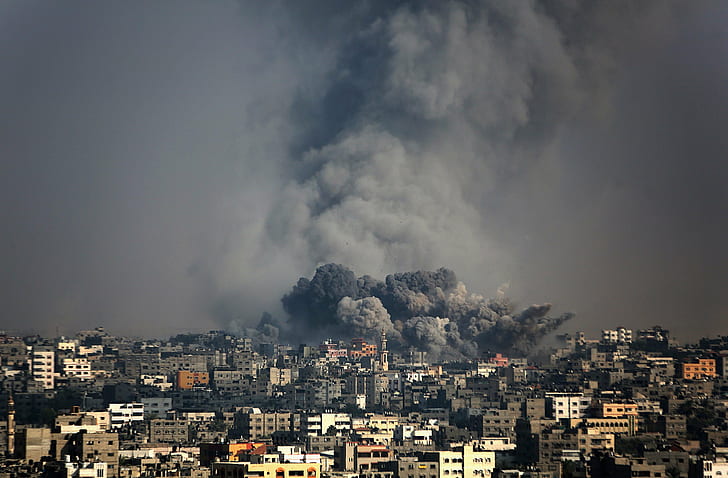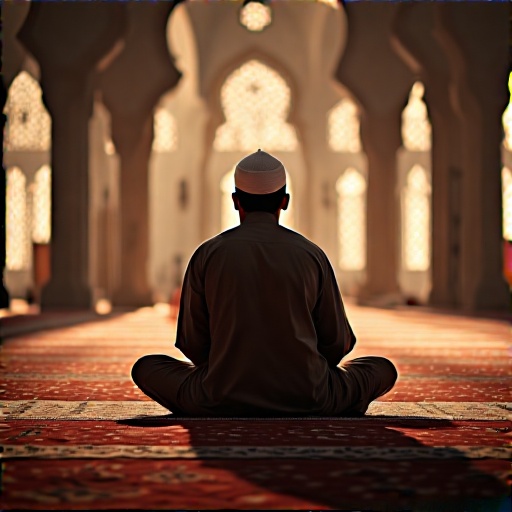Adversity is an inevitable thread woven into the fabric of human existence-a reality Islam acknowledges with profound wisdom. The Quran reminds believers:
“We will surely test you with something of fear, hunger, loss of wealth, lives, and fruits. But give good tidings to the patient.” (Quran 2:155)
From financial crises to personal loss, Muslims are taught to view trials as opportunities for spiritual growth, divine mercy in disguise, and a means to draw closer to Allah. This article explores the Islamic framework for enduring hardship, offering timeless guidance from the Quran, Sunnah, and lives of the righteous to empower believers in navigating life’s storms with unshakable faith.
The Theological Foundation of Adversity in Islam
Trials as Divine Wisdom
Islamic theology frames adversity as a purposeful component of Allah’s creation. The concept of ibtila (divine test) appears over 30 times in the Quran, emphasizing that trials are neither random nor punitive but rather:
- Mechanisms for spiritual elevation
- Means to expiate sins
- Opportunities to demonstrate faith
The Prophet Muhammad ﷺ said:
“No fatigue, illness, anxiety, sorrow, harm, or distress befalls a Muslim-even a thorn that pricks them-except that Allah expiates some of their sins through it.” (Sahih Bukhari 5641)
Types of Tests in Islamic Teachings
Classical scholars categorized trials into three dimensions:
- Physical: Illness, injury, or natural disasters
- Material: Financial loss or scarcity
- Emotional: Grief, fear, or relational conflicts
Imam Al-Ghazali noted in Ihya Ulum al-Din: “The believer’s heart alternates between two lights-gratitude in ease and patience in hardship-both leading to Allah’s pleasure.”
Quranic Guidance for Navigating Hardship
The Paradigm of Patience (Sabr)
The Quran elevates sabr as the cornerstone of resilience:
“O you who believe! Seek help through patience and prayer. Indeed, Allah is with the patient.” (Quran 2:153)
This verse establishes a two-fold approach: internal resolve (sabr) coupled with spiritual connection (salah).
Divine Promise of Ease After Difficulty
Allah assures believers of inevitable relief:
“For indeed, with hardship comes ease. Indeed, with hardship comes ease.” (Quran 94:5-6)
The repetition underscores certainty-every trial carries proportional ease, often in unexpected ways.
Prophetic Models of Resilience
Prophet Ayyub (Job) (PBUH): The Epitome of Patience
Stricken with severe illness and loss, Ayyub (PBUH) maintained unwavering trust in Allah, praying:
“Indeed, adversity has touched me, and You are the Most Merciful of the merciful.” (Quran 21:83)
His story teaches that complaining to Allah (rather than about Him) is an act of worship.
Prophet Yusuf (Joseph) (PBUH): From Prison to Power
Betrayed, enslaved, and imprisoned, Yusuf (PBUH) transformed each trial into an opportunity:
- Used prison time to preach monotheism
- Interpreted dreams as divine service
- Forgave his brothers, stating:
“No blame will there be upon you today. May Allah forgive you, and He is the Most Merciful of the merciful.” (Quran 12:92)
Practical Strategies for Modern Muslims
1. Reframing Perspective Through Tawakkul (Reliance on Allah)
A 2023 study by Cambridge’s Muslim Psychology Network found that believers who internalized tawakkul showed 40% lower anxiety levels during crises. Practical steps include:
- Morning/evening remembrance (adhkar) to cultivate Allah-consciousness
- Repeating hasbunAllahu wa ni’mal wakeel (Allah suffices us, and He is the Best Disposer of affairs)
2. The Healing Power of Communal Support
The Prophet ﷺ emphasized:
“The believers in their mutual kindness, compassion, and sympathy are like one body. When any limb aches, the whole body reacts with sleeplessness and fever.” (Sahih Muslim 2586)
Modern applications include:
- Mental health initiatives at mosques
- Crowdfunding platforms for Islamic micro-charity
3. Balancing Spiritual and Psychological Approaches
Contemporary scholars like Dr. Omar Suleiman advocate integrating:
- Islamic coping mechanisms (dua, Quran recitation)
- Professional counseling (Islamically tailored CBT)
Addressing Common Questions
Why Do the Righteous Suffer?
Ibn Taymiyyah explained: “Allah allows His beloved servants to be tested intensely so their ranks may be elevated to the highest paradises.” (Majmu’ al-Fatawa 10/48)
How to Avoid Despair During Prolonged Trials?
Reflect on Allah’s past favors:
“If you tried to count Allah’s blessings, you could never enumerate them.” (Quran 16:18)
Engage in istighfar (seeking forgiveness), which the Prophet ﷺ called “the people’s provision during destruction.” (Musnad Ahmad 2234)
Can We Pray for Relief from Tests?
While seeking relief is permissible, the Prophet ﷺ taught a balanced dua:
“O Allah, make me grateful to You, mindful of You, fearful of You, obedient to You, humble before You, penitent and returning to You.” (Sunan Tirmidhi 3484)
Conclusion: The Eternal Victory of Steadfastness
Adversity in Islam is not a sign of divine displeasure but a classroom for soul refinement. As the Quran assures:
“As for those who strive in Our cause-We will surely guide them to Our paths. Indeed, Allah is with the doers of good.” (Quran 29:69)
Let us walk the path of the patient, embracing trials as gifts that polish our faith. When next faced with hardship, recall the Prophet’s ﷺ counsel: “How wonderful is the affair of the believer! His matter is always good… If he is tested, he is patient, and that is good for him.” (Sahih Muslim 2999). May our struggles become stepping stones to eternal success.







